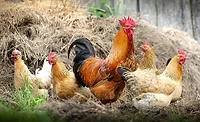UK Postpones Implementation of New Food Import Controls by Three Months

Image credit: Martin Damboldt via Pexels
The UK Government has delayed the introduction of new food import controls under the Border Target Operating Model (TOM), postponing the requirement for the inspection and certification of medium- and high-risk animal products and produce entering the country. The first phase of implementation was originally scheduled for October 31, 2023, but will now begin January 31, 2024.
The proposed model will prevent delays at the UK border by reducing the need for physical checks for many types of goods, and by ensuring that checks take place in a location other than ports to enable traffic to flow freely.
A draft TOM was published in April 2023, and the final version with an updated implementation timeline was published in August. The final TOM incorporates feedback received about the draft. The new schedule for the phased introduction of controls under TOM is as follows:
- January 31, 2024: The introduction of health certification on imports of medium-risk animal products, plants, plant products, and high-risk food (and feed) of non-animal origin from the EU.
- April 30, 2024: The introduction of documentary and risk-based identity and physical checks on medium risk animal products, plants, plant products, and high-risk food (and feed) of non-animal origin from the EU. Imports of sanitary and phytosanitary goods from the rest of the world will also become subject to the new risk-based model.
- October 31, 2024: Safety and Security declarations for EU imports will come into force, and the UK Government will introduce a reduced dataset for imports.
Looking for quick answers on food safety topics?
Try Ask FSM, our new smart AI search tool.
Ask FSM →








